Jaron Mar
Constrained Few-Shot Learning: Human-Like Low Sample Complexity Learning and Non-Episodic Text Classification
Aug 17, 2022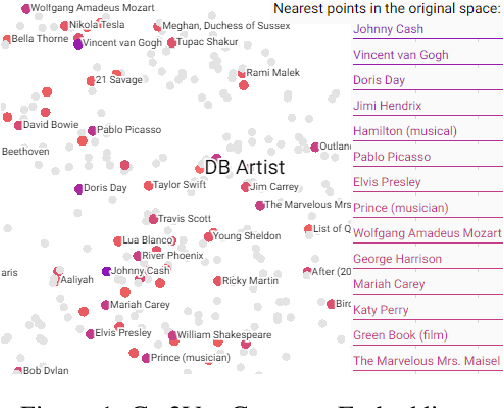
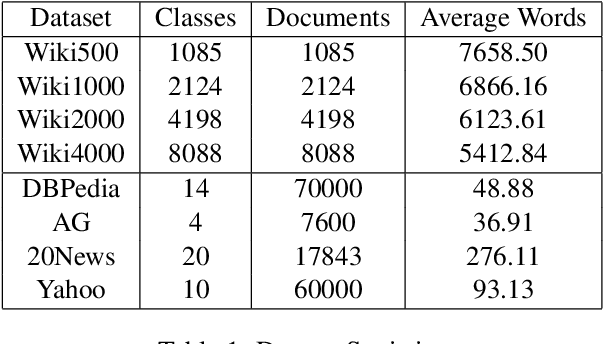
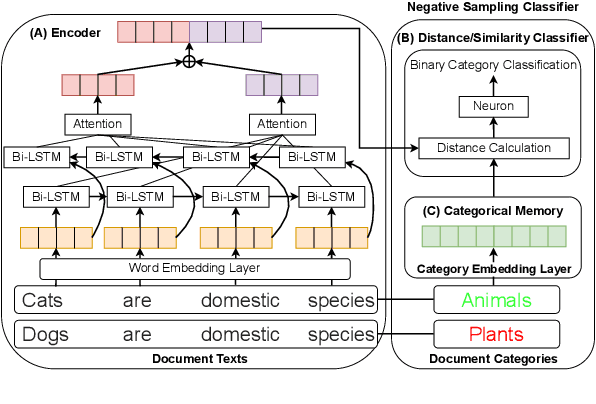

Abstract:Few-shot learning (FSL) is an emergent paradigm of learning that attempts to learn with low sample complexity to mimic the way humans can learn, generalise and extrapolate based on only a few examples. While FSL attempts to mimic these human characteristics, fundamentally, the task of FSL as conventionally described and modelled using meta-learning with episodic-based training does not fully align with how humans acquire and reason with knowledge. FSL with episodic training, while only using $K$ instances of each test class, still requires a large number of labelled instances from disjoint training classes. In this paper, we introduce the novel task of constrained few-shot learning (CFSL), a special case of FSL where the number of training instances of each class is constrained to be less than some value $M$ thus applying a similar restriction during training and test. We propose a method for CFSL leveraging Cat2Vec using a novel categorical contrastive loss inspired by cognitive theories such as fuzzy trace theory and prototype theory.
From Cognitive to Computational Modeling: Text-based Risky Decision-Making Guided by Fuzzy Trace Theory
May 15, 2022
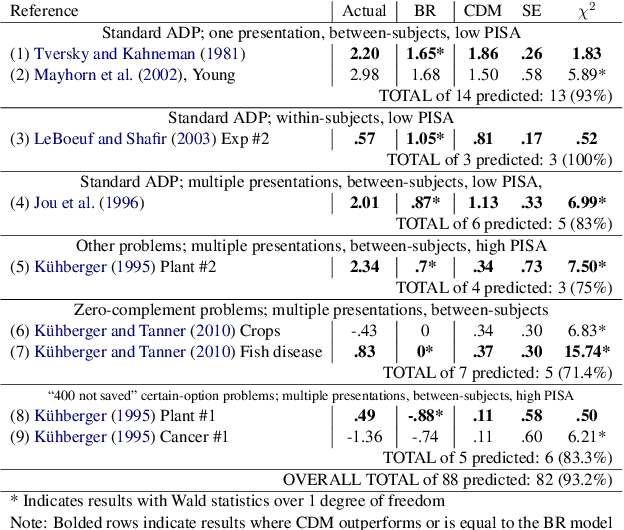
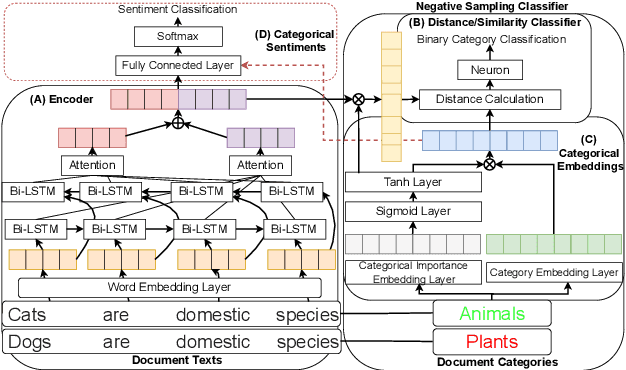
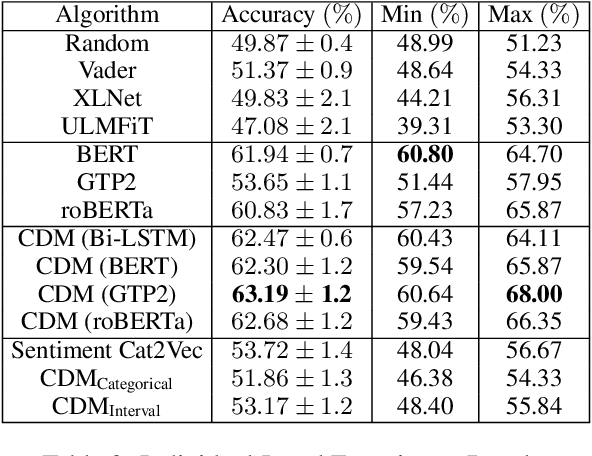
Abstract:Understanding, modelling and predicting human risky decision-making is challenging due to intrinsic individual differences and irrationality. Fuzzy trace theory (FTT) is a powerful paradigm that explains human decision-making by incorporating gists, i.e., fuzzy representations of information which capture only its quintessential meaning. Inspired by Broniatowski and Reyna's FTT cognitive model, we propose a computational framework which combines the effects of the underlying semantics and sentiments on text-based decision-making. In particular, we introduce Category-2-Vector to learn categorical gists and categorical sentiments, and demonstrate how our computational model can be optimised to predict risky decision-making in groups and individuals.
 Add to Chrome
Add to Chrome Add to Firefox
Add to Firefox Add to Edge
Add to Edge